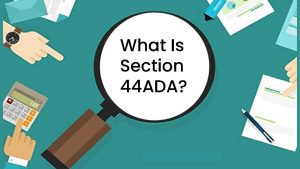Section 24 – The building or buying a new home is a difficult challenge. To bring this vision into possibility, an average citizen spends all of his life’s savings and even takes out a home mortgage. As a result, Section 24 of the Income Tax Act allows residents to exclude interest accrued on a home loan.
Section 24 of the Income Tax Act states that if a house is purchased with loaned funds, it is taxable. Then interest charged on such borrowing capital is deductible, with the following deduction amount –
For the purchase and building of the home, money is borrowed. And the house must be bought or built-in 5 years of the end of the fiscal year in which the money was borrowed – Then maximum interest deduction will be Rs.2,00,000
The maximum interest deduction will be Rs.30,000 If the money is borrowed.
- Before 1/4/99 (for purchase, construction, repair, renewal, reconstruction).
- On or after 1/4/99 (for repair, renewal or reconstruction).
- If any of the first condition’s requirements are not met.
Section 24 – When the house is occupied by its owner

If you take out such a mortgage loan to construct or buy a home for your own usage, you can subtract the interest you pay.
In certain cases, the annual value of a self-occupied property is zero. As a result, all city taxes paid will be disallowed, and the standard deduction would be zero. Interest on borrowing capital would be the only value that can be deducted, and it will be restricted to Rs.2 lac. This will result in a loss underneath the house property heading, that can be offset against other sources of revenue.
Must Read – What is Section 80GG?
One factor to keep in mind is the carryover of interest amounts in excess of 2 lakh.
Section 24 – Renting the house
A rented house is treated differently than self-occupied property. The Gross Annual Value must be estimated in this situation.
Renting the property has the added advantage of allowing you to take forward any further losses. Just Rs.2 lac would be permitted as a deduction, and excess debt will be carried forward for the next AYs. In the case of self-occupied land, however, this loss can be erased.
House Property Deductions
Municipal tax – The yearly fee charged to the municipal corporation of that city is known as municipal taxes. To calculate the Net Annual Value of the house land, subtract municipal taxes from the Gross Annual Value. Municipal taxes could only be deducted if they were charged and incurred by the taxpayer during the fiscal year.
Standard Deduction – The standard deduction is 30% of the above-mentioned Net Annual Value. This 30% deduction is permitted regardless of whether the real property costs are higher or lower. As a result, this allowance is made regardless of the real expenses you may have accrued on taxes, maintenance, utilities, or water supplies, among other things. Because the Annual Value of self-occupied residential properties is zero, the standard deduction is also nil.
Deduction of Interest on Home Loan for the property – If the owner or his family lives in the building, the owner or his family may seek deductions of up to Rs.2 lakh on their home loan interest. When the house is empty, the same procedure is applied. The whole interest on the home loan will be deducted if the house has been leased out. If you don’t follow all of the provisions for the Rs.2 lakh refund, the interest deduction is reduced to Rs.30,000.
- The home loan should be used to buy and build a home.
- On or after 1/4/1999, the loan should be paid out.
- The purchasing or building must be finished within 5 years of the loan being taken out.



